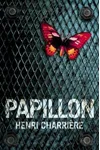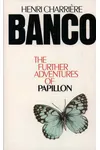Picture a French adventurer who turned his daring prison escapes into a literary sensation—meet Henri Charrière! Best known for his thrilling autobiographical novel Papillon, Charrière transformed a life of crime and survival into a gripping tale that captivated millions. His story of resilience against the odds is as unforgettable as the man himself.
Born in 1906, Charrière’s journey from petty criminal to celebrated author is nothing short of cinematic. Sentenced to life in a brutal penal colony for a murder he swore he didn’t commit, his relentless spirit and knack for storytelling made him a legend. Ready to dive into his wild world?
The Making of Henri Charrière
Henri Charrière was born on November 16, 1906, in Ardèche, France, to a middle-class family. His early life was marked by loss—his mother died when he was just 10, leaving a void that shaped his rebellious streak. By his 20s, Charrière was a small-time crook in Paris’s underworld, earning the nickname 'Papillon' (French for butterfly) for a tattoo on his chest. In 1931, a wrongful murder conviction sent him to the notorious penal colonies of French Guiana, where his saga of survival began.
Henri Charrière’s Unforgettable Stories
Charrière’s literary legacy rests on Papillon, published in 1969, a raw, vivid account of his imprisonment and audacious escapes from French Guiana’s penal system. The book’s gritty realism, paired with Charrière’s defiant optimism, hooked readers worldwide, selling over 1.5 million copies in France alone. Its blend of adventure, injustice, and human spirit made it a global bestseller.
His follow-up, Banco (1972), chronicled his post-escape life in Venezuela, where he rebuilt himself as a free man. Though less acclaimed, it showcased his knack for turning hardship into compelling narrative. Charrière’s style—direct, unpolished, and pulsating with defiance—mirrored his personality, making his works feel like a conversation with a fearless friend.
While Papillon remains his defining work, its authenticity has sparked debate. Some critics argue Charrière embellished details, blending his story with other prisoners’ tales. Regardless, the book’s emotional truth and cinematic pacing cement its place as a classic of survival literature.
Why Henri Charrière Matters
Henri Charrière’s impact transcends his books. Papillon inspired a 1973 film starring Steve McQueen and a 2017 remake, bringing his story to new generations. His tale of resilience resonates with anyone facing seemingly insurmountable odds, making him a symbol of the human spirit’s tenacity. Charrière’s work also shed light on the horrors of colonial penal systems, sparking discussions about justice and reform.
His legacy endures in readers who find hope in his refusal to be broken. From literature to pop culture, Charrière’s story proves that even in the darkest moments, a spark of defiance can light the way.
- Born: November 16, 1906, Ardèche, France
- Key Works: Papillon (1969), Banco (1972)
- Notable: Papillon inspired two major films (1973, 2017)
- Died: July 29, 1973, Madrid, Spain
About Henri Charrière
Snag Papillon and dive into Henri Charrière’s thrilling world of survival and redemption!

